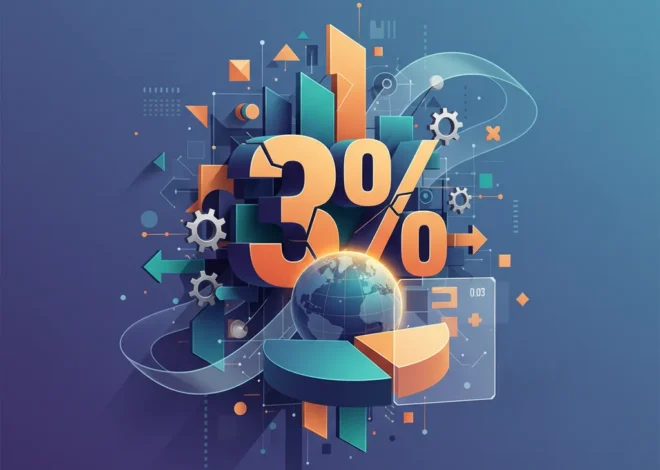
An Unprecedented Apology: What the White House-Hyundai Incident Reveals About the Future of US Investing
In the high-stakes world of international business and geopolitics, an apology from the White House to a foreign corporation is a rare and significant event. When Hyundai’s global chief operating officer, Jose Munoz, revealed that the White House had personally apologized for a raid on one of its US suppliers, it sent ripples through the worlds of finance, policy, and corporate strategy. Munoz described the raid as “a bad surprise,” a masterful understatement for an incident that strikes at the heart of America’s push to re-shore critical manufacturing.
This is not merely a corporate grievance story. It’s a complex case study that lays bare the inherent tensions between regulatory enforcement, economic incentives, and the delicate dance of foreign direct investment (FDI). For investors, business leaders, and anyone tracking the health of the US economy, the Hyundai-White House affair is a critical data point, revealing both the immense opportunities and the latent risks of building the future of industry on American soil.
The “Bad Surprise”: Deconstructing the Georgia Raid
To understand the gravity of the situation, we must first unpack the context. While the initial report is concise, the backdrop involves serious allegations that have shadowed Hyundai’s US operations. In recent years, investigations have uncovered the use of child labor at several of the company’s suppliers in Alabama. This issue is a significant breach of labor laws and a major reputational and ethical liability. Federal raids on suppliers are a standard, if severe, part of the enforcement toolkit for the Department of Labor.
From a purely regulatory standpoint, the raid was justifiable. From a strategic economic perspective, however, its timing and execution were fraught with peril. Hyundai is not just any foreign automaker; it is a cornerstone of the Biden administration’s industrial policy. The company is investing billions of dollars into a state-of-the-art “Metaplant” in Georgia, dedicated to electric vehicles (EVs) and batteries. This project is a poster child for the Inflation Reduction Act (IRA), which uses massive tax credits to incentivize domestic EV and green energy production.
The apology from the White House, therefore, signals a crucial recognition: Hyundai is too important to alienate. While enforcement of labor laws is non-negotiable, the administration appears to be walking a tightrope, attempting to reassure a key economic partner that they are valued, not targeted. Munoz’s confirmation that Hyundai will continue its massive investment in the US underscores that the message, however delivered, was received. Despite the raid, the long-term strategic alignment between the company and the US government remains intact.
The Trillion-Dollar Pivot: Why Bill Gates’ Climate Shift Is a Wake-Up Call for Investors
The Investor’s Dilemma: Balancing Risk and Unprecedented Opportunity
For anyone involved in investing, this scenario presents a fascinating duality. On one hand, the raid highlights a significant ESG (Environmental, Social, and Governance) risk in Hyundai’s supply chain. Allegations of child labor can damage brand reputation, invite consumer boycotts, and lead to hefty fines, all of which can negatively impact the stock market performance of Hyundai and its affiliates. Active traders and fund managers focused on ethical investing would have seen this as a major red flag.
On the other hand, the government’s conciliatory response is a profoundly bullish signal. It demonstrates an implicit “government put”—an understanding that the state has a vested interest in the success of these mega-investments. This reduces political risk, a major concern for any corporation sinking billions into a foreign country. Hyundai’s reaffirmed commitment to the US, in turn, solidifies its position to capture a significant share of the burgeoning American EV market, backed by powerful federal incentives.
Let’s break down the key financial and strategic metrics at play.
| Metric | Details & Context | Implication for Investors & Finance |
|---|---|---|
| Total US Investment | Over $12.6 billion pledged for Georgia alone, including the EV Metaplant and battery manufacturing facilities. This is one of the largest economic development projects in the state’s history. | Signals a deep, long-term commitment. The sheer scale of capital deployed makes a strategic withdrawal highly unlikely, providing a stable outlook. |
| Job Creation | The Metaplant is expected to create over 8,100 direct jobs, with thousands more in the surrounding supplier ecosystem. | Creates strong political goodwill at both state and federal levels, increasing the likelihood of continued government support and subsidies. |
| Strategic Alignment with IRA | Hyundai’s investment is tailored to meet the criteria for IRA tax credits, which require North American assembly and specific battery sourcing. | Positions Hyundai to be a highly competitive player in the US EV market, potentially boosting future revenue and profitability. A key factor in any economics-based forecast. |
| Identified Risk | Supply chain labor violations (child labor). The raid is a symptom of this deeper operational vulnerability. | Represents a significant ESG risk that requires diligent monitoring. The company will now be under intense pressure to invest in compliance and transparency. |
| Government Response | Federal raid (enforcement) followed by a White House apology (reassurance). | This dual action, while seemingly contradictory, ultimately de-risks the political landscape for Hyundai, confirming its status as a critical strategic partner. |
This table illustrates that while the operational risks are real, the strategic and financial upsides, buttressed by government support, are immense. The core of modern industrial investing often involves navigating these very trade-offs.
A New Frontier: Can Technology Solve an Age-Old Problem?
The Hyundai incident is a stark reminder that even in an era of advanced analytics and global connectivity, supply chains can be dangerously opaque. This is where the conversation pivots toward financial technology (fintech) and its more disruptive cousin, blockchain.
For decades, supply chain audits have relied on paperwork, site visits, and trust. These methods are clearly fallible. The challenge has always been creating a single, immutable source of truth that can be accessed by manufacturers, regulators, and even consumers. This is precisely the problem that blockchain technology is designed to solve.
Imagine a future where every component, every raw material, and every hour of labor is logged on a distributed ledger. A blockchain-based system could provide:
- Verifiable Provenance: Tracing the origin of cobalt for a battery back to a specific mine, ensuring it wasn’t sourced using child labor.
- Immutable Labor Records: Using digital identities to verify the age and credentials of every worker in the supply chain, making it nearly impossible to fudge records.
- Smart Contracts: Automating payments to suppliers only when compliance metrics (like verified labor standards) are met, creating a powerful financial incentive for ethical behavior.
This isn’t science fiction. Companies like IBM and SAP are already developing these solutions. For a company like Hyundai, investing in this kind of fintech infrastructure is no longer just a “nice-to-have”; it’s a critical tool for risk management. It protects the brand, satisfies ESG-conscious investors, and prevents the kind of “bad surprises” that lead to federal raids and frantic calls from the White House. Integrating such technology is becoming essential for any major player in the global economy.
Beyond the Crown: Deconstructing the £1M Bitcoin Scam of a Fake Royal
The Bigger Picture: The Future of Foreign Investment and US Industrial Policy
Zooming out, the Hyundai affair is a microcosm of a larger global shift. The era of frictionless globalization is over, replaced by a more complex landscape of “friend-shoring,” strategic competition, and national industrial policy. The US is aggressively using tools like the IRA and the CHIPS Act to attract allies’ capital and rebuild its manufacturing base, particularly in sectors critical to national security and the green transition.
However, this strategy comes with inherent friction. Foreign companies operate under different cultural and legal norms. Integrating their operations into the stringent US regulatory environment is a massive undertaking. The US government, in turn, must learn to balance its role as a welcoming host with its duty as a strict regulator. If the balance tips too far toward aggressive, surprising enforcement, it could chill the very investment it seeks to attract. If it becomes too lenient, it risks enabling the exact kind of labor and environmental exploitation its laws are designed to prevent.
The key takeaway for other multinational corporations looking to invest in the US is twofold:
- Compliance is Non-Negotiable: Expect intense scrutiny of your supply chain and labor practices. Proactive, transparent, and technologically-backed compliance is the only way to operate successfully.
- Strategic Importance is Your Shield: The more central your investment is to America’s economic and political goals, the more likely you are to have a direct line to policymakers who can help navigate bureaucratic and regulatory challenges.
Ultimately, the White House apology to Hyundai wasn’t a sign of weakness; it was a pragmatic act of economic statecraft. It was a clear signal to the world of international finance and industry that while the US will enforce its laws, it will not jeopardize the multi-trillion-dollar project of revitalizing its industrial core. For now, the immense power of capital and strategic necessity has smoothed over a major international incident, allowing the wheels of the new American economy to keep turning.


